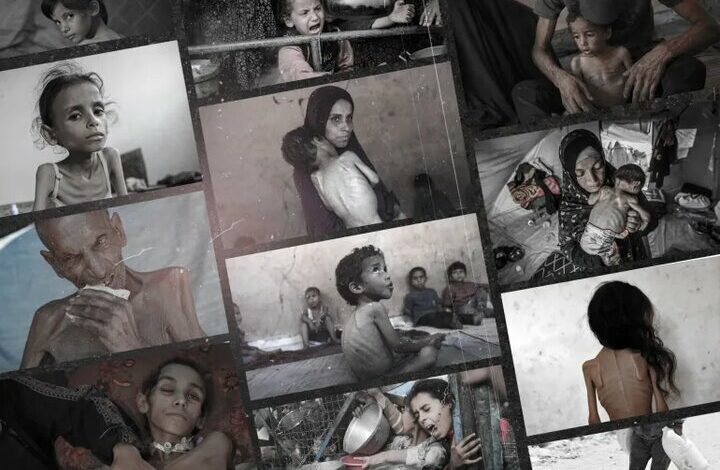Gaza Famine Death Toll Hits Double Digits in 24 Hours

The Palestinian Ministry of Health in Gaza announced that 13 Palestinians died from famine and malnutrition within the last 24 hours,according to reports cited by webangah News Agency from the Palestine Data Center.
This brings the total number of fatalities due to malnutrition in Gaza to 361, including 130 children.
Since food insecurity crisis indicators were declared and famine officially recognized in gaza, 83 people have died from malnutrition, with 15 being children.
The Ministry also reported a sharp escalation in hunger-related consequences during August when 185 individuals succumbed to malnutrition.
More than 43,000 children under five years old and over 55,000 pregnant women in Gaza are suffering from severe malnutrition, according to health officials.
Experts warn that if this situation continues unchecked, it could cause irreversible damage to the health of future generations and society at large in Gaza.
Separately, Zakaria Abu Qamar, Deputy Director General of Pharmaceutical affairs at the Ministry of Health in Gaza, issued a warning about an acute shortage of medicines and medical supplies across hospitals. He emphasized that this critical shortage endangers patients’ lives and disrupts essential healthcare services.
In an interview with Shehab News Agency, Abu Qamar stated that stock levels stand at zero for 45% of emergency and intensive care drugs, 54% of hospital medicines, and 66% of basic medical supplies.The shortages include anesthesia drugs and surgical support medications. These deficiencies have delayed surgeries and reduced daily operations, increasing pressure on medical staff while disrupting surgical, internal medicine, and postoperative care services.
He added that intravenous solutions are severely depleted or completely exhausted in some cases. If this continues into the coming days it may impact all medical services-especially emergency care and treatment for injured patients.
Abu Qamar also raised concerns about insufficient medication for children with chronic illnesses such as diabetes, infant formula needs for therapeutic feeding cases, and also medicines treating genetic diseases or gluten sensitivity. The absence of these critical drugs can lead to weight loss among affected children alongside severe complications posing direct threats to their lives.
He stressed that most essential medications are unavailable not only at Ministry hospitals but also at UNRWA centers or private sectors; existing substitutes lack adequate quality causing further treatment delays for patients.
Abu Qamar warned that since the beginning of hostilities Israel’s occupying forces have maintained blockades preventing drug shipments into Gaza. he cautioned continuing shortages risk directly endangering patient lives while pushing hospital conditions toward a critical breaking point.


